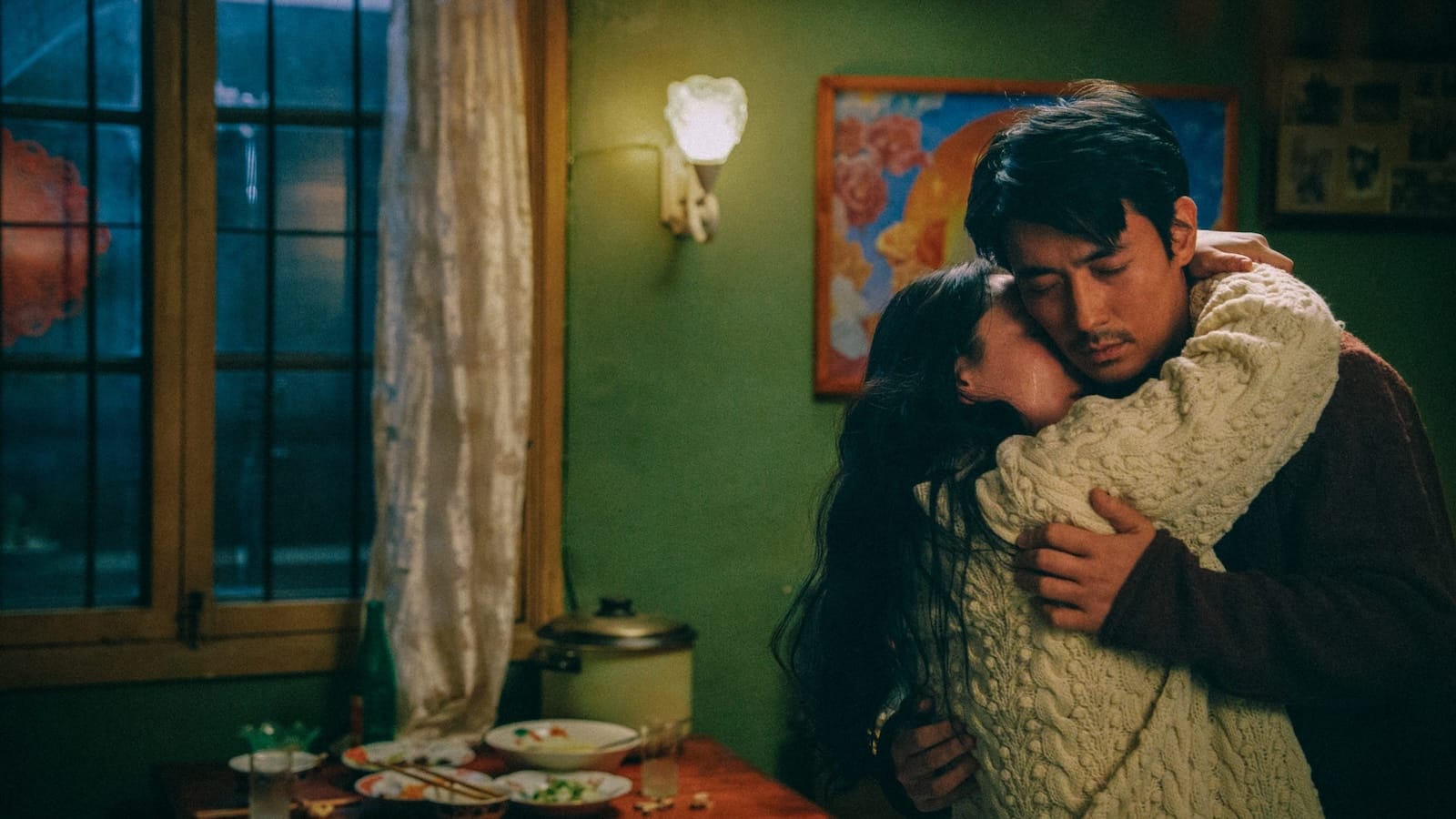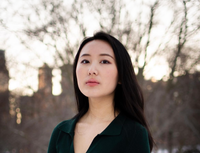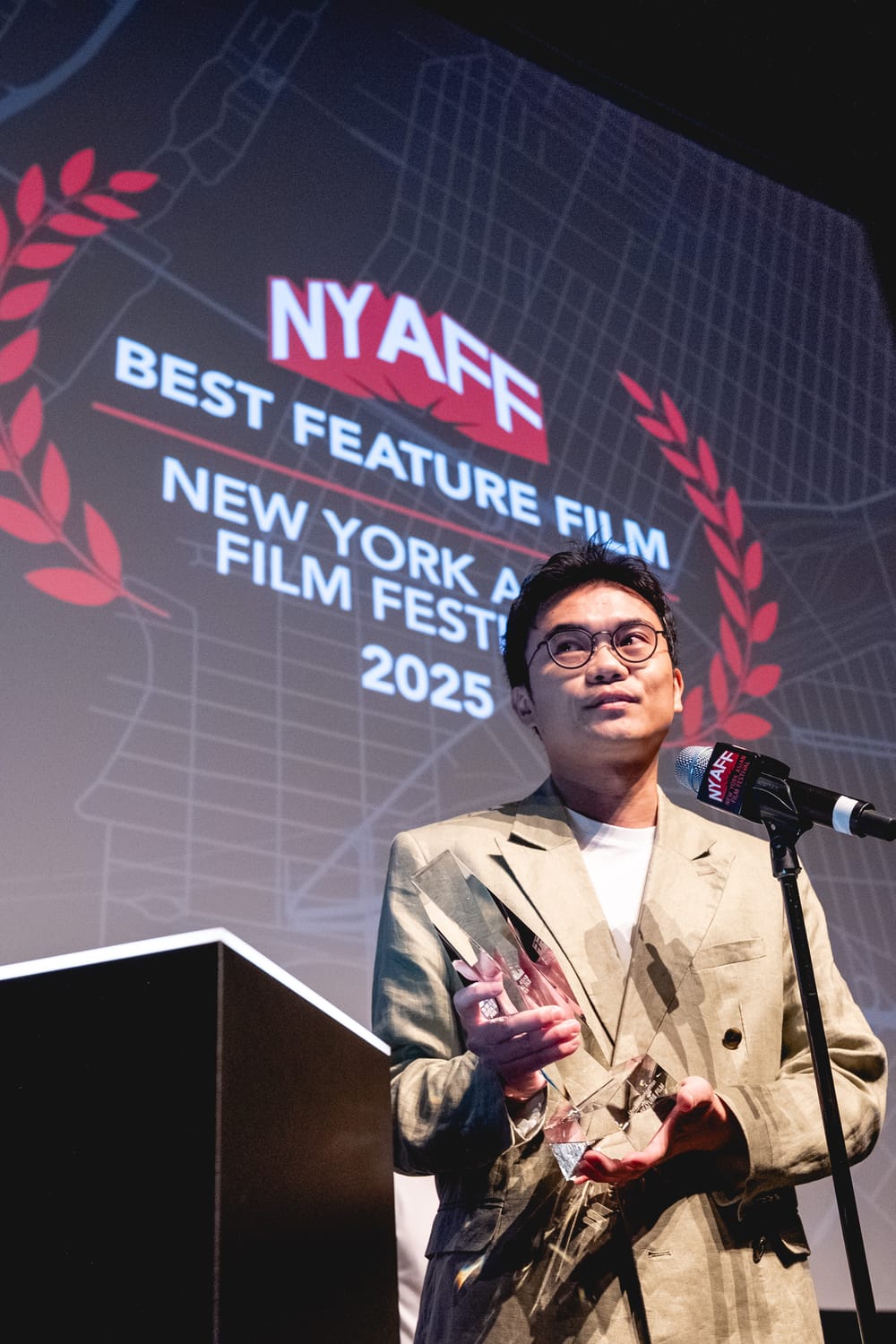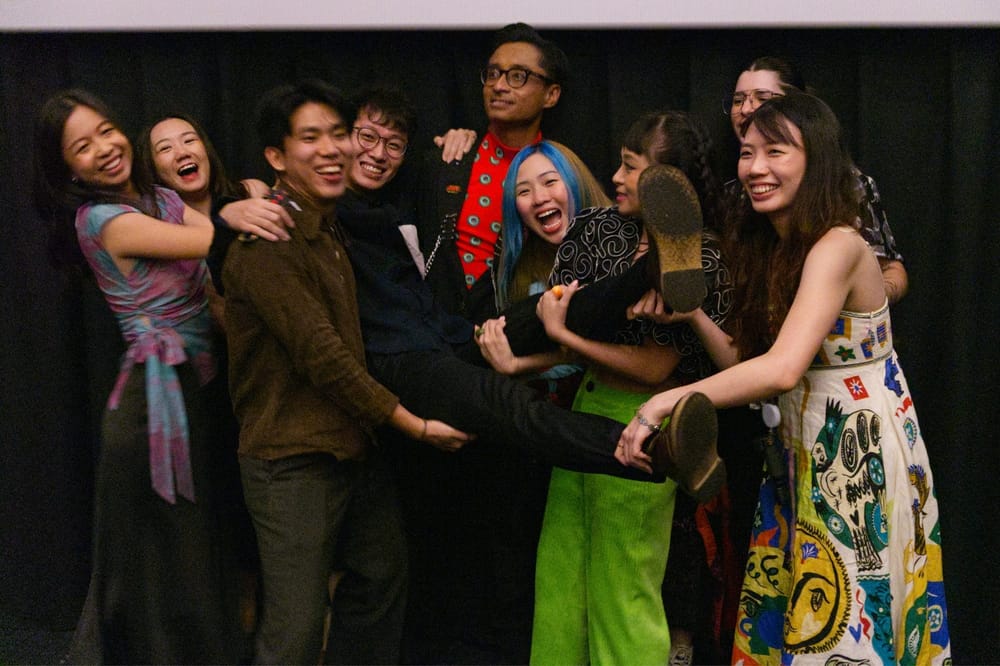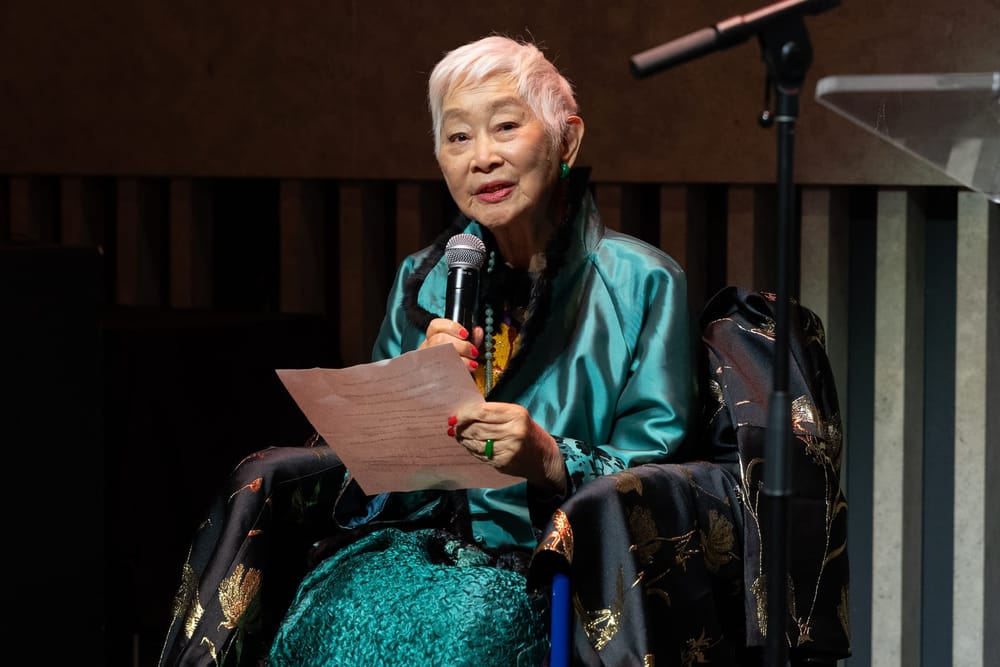By Ash Wu
Like the films once screened at the abandoned movie theater where the police department sets up shop, Wei Shujun’s cop procedural “Only the River Flows” unfolds in a series of tableaux. Pig carcasses dangle from hooks on a stage. A couple, slowly growing apart, sits at a table eating dinner in near silence. A boy wearing a police cap weaves through decrepit buildings wielding a toy gun. The aperture of a movie projector clicks incessantly, intertwining with radio chatter and Beethoven’s “Moonlight Sonata.”
A period piece set in 1995, “Only the River Flows,” adapted from a novella by Yu Hua, traces the mental dissolution of Ma Zhe (Zhu Yilong), a handsome, leather-jacket-clad police detective investigating a string of murders in a Jiangdong village. The film is a chimera: half-neo noir and half-psychological thriller, imbued with punches of dark humor that ignited my theater with laughter. After an old woman called Granny Four is killed by a scythe while feeding ducks near the dam, Ma Zhe plunges headlong into the seedy underbelly of his town, which is riddled with secrets and repressed yearning.
The people Ma Zhe meets are characters akin to those within the Southern Gothic tradition: his pregnant wife Bai Jie (Chloe Maayan), who distracts herself from ennui by working on a massive puzzle of the Virgin Mary holding Jesus; Qian Ling (Liu Baisha), a school girl caught in a torrid love affair with a poetry teacher; Xu Liang (Kira Wang) a cross-dressing hair stylist suffering from gender dysphoria; and Madman (Kang Chunlei), a disabled man and the prime murder suspect. All these villagers are misinterpreted and misunderstood by their peers, shuttering them into an isolation where they must confront their unfulfilled desires.
In one striking scene, Ma Zhe drives through the night while listening to a cassette tape left at the scene of the crime. On the B side, a woman speaks to her lover in a voice dulled by sleep. “Hong, I want to tell you a secret,” she says, before the sound of an incoming train overwhelms her voice. The tape jams on this line as Ma Zhe rushes out of his car to confront a man who ran across the beam of his headlights. “I want to tell you a secret,” the voice says over and over, stuck on the precipice of revelation. The hairs on my arm electrified.
Each film is a love letter to cinema, but Wei is not just an admirer but an obsessive. When you watch his films, he wants you to be aware that you’re watching a film — a waking dream where each shot captures fleeting beauty and the crush of temporality.
The 33-year-old director encases his characters in a thick slab of celluloid. He places his police officers in the theater, often framed from the audience, and sets cameras ablaze. His cinematographer, Zhiyuan Chengma, shoots chronologically in glorious 16mm containing crunchy bits of grain. His last three movies, all featured at Cannes, are considered meta-films, though Wei admitted in a post-screening Q&A that he wasn’t aware of the term “meta-film” until he read reviews of his work.
If “Only the River Flows” is a meta-film, then it is also a meta-police procedural. Wei wanted to tell a detective story in an anti-genre way, and although the film does recall David Fincher’s “Seven,” “Chinatown,” and even “Blue Velvet,” he seems more concerned with the space in between plot lines and genre than the narrative engine itself. He described his filmmaking ethos with a Daoist passage: “Cut doors and windows to make a room; emptiness makes the room useful.”
This preoccupation with emptiness and liminal space distinguishes the film from other projects of its ilk. Wei doesn’t pander to the viewer; he invites them to fill in the blanks. Masterful blocking highlights the background, allowing the actors to divulge details of their character’s rich inner worlds, apart from the action. They also multitask often, washing vegetables while discussing childbirth or slurping noodles while examining evidence.
The dynamic between Ma Zhe and Madman offers another opportunity to fill in the blanks. An uneasy frisson develops between the two men when Ma Zhe learns that his unborn baby has a 10 percent chance of developing a genetic abnormality. The tension is implicit. After hearing the news, the detective tells his wife, “Let’s do abortion.”
He is haunted by thoughts of Madman, and he fears that his child will grow up under the conditions that estrange Madman from everyone else. This fear culminates in an epic nightmare sequence that shows ping pong balls dropping by the boatload and visions of the murder victims from the point of view of the killer. To portray the stresses of Ma Zhe’s dilemma, Zhu Yilong gained weight for the role then lost it over the course of the shoot.
On the back end, the crew does a lot to ensure that Ma Zhe’s fear transfers to the audience. Rain coats the screen in most of the outdoor scenes. Flashlights traverse a waterlogged Converse shoe that alludes to another victim. Additionally, Wei, who majored in sound design in college, uses music from David Cronenberg’s “Crash” — which he says he’s never seen — to amp up the reticent horror lurking in the background.
Co-screenwriter Kang Chunlei was cast as Madman. When asked why he made this unorthodox choice, Wei shrugged. “It’s expensive,” he said. However, keeping in line with the film’s inhabitants, people who spend their days soaked in repression while pretending that they don’t, Wei defended his decision to cast non-actors. “Everyone practices performance for themselves in everyday life,” he said.


